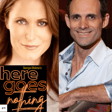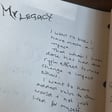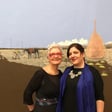
Season 2, Episode 1: Comedy with Libby Klysz and Guest Interviewer Sam Longley
Comedy, whether stand-up, comedic plays, improvisation, sketch, or burlesque, is an omnipresent genre: universally beloved, indispensable, and… underestimated? The second season of Georgia Malone’s Here Goes Nothing launches with comedy stalwart Libby Klysz in conversation with Big Hoo Haa! founder Sam Longley to discuss why the Trojan Horse of comedy is so important and brave, despite the lack of respect it’s constantly afforded. From court jesters to COVID, from punching up to fart jokes, from ego to gender politics, this is an episode that covers the lot! Yes, And!
Show Links:
TheatreSports Australia: https://www.facebook.com/theatresportsoz/about/?_rdr
The Big Hoo Haa!: https://thebighoohaa.com.au/
Chuck the Hoo Haa a follow: https://www.instagram.com/thebighoohaa/
The Hoo Haa on Facebook: https://www.facebook.com/TheBigHooHaa
Bindjareb Pinjarra: https://www.ilbijerri.com.au/event/bindjareb-pinjarra/
Les Ballets Trockadero de Monte Carlo: https://trockadero.org/
YUCK Circus: https://yuckcircus.com/
For enquiries, suggestions, or bookings, email; tobypmalone at gmail dot com.













